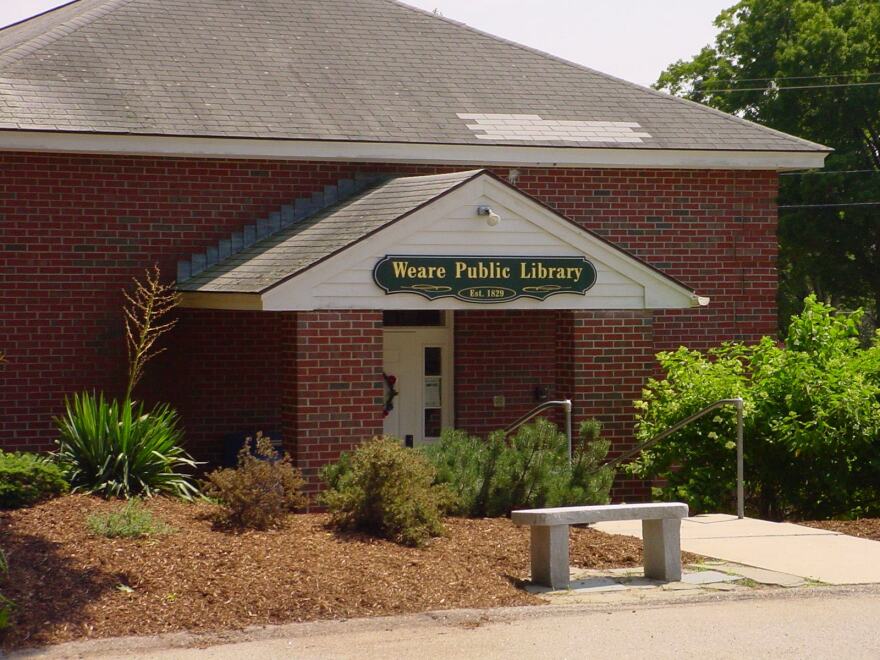After the small, southern New Hampshire town of Weare lost its community newspaper in 2016, library director Mike Sullivan stepped up to fill in missing media coverage.
Morning Edition Host Rick Ganley spoke with Sullivan about how he produces and prints the weekly paper, Weare in the World, from the town library.
(Editor's note: this transcript has been edited lightly for clarity.)

Can you talk about what was missing from Weare? I think when we spoke earlier, you talked about kind of a media desert going on in town.
Oh yeah, without anyone covering Weare, we really had two problems. We had no way of getting community information, whether it was governmental information, citizen information, or even just arts, social events, those sorts of things. So we had to address that. The other thing we really needed to address was a lack of a sense of community. And it's amazing nowadays without local media, communities are missing that piece, and in Weare there's a lot of other pieces missing to the point where there wasn't a real sense that there was a Weare. There was South Weare that was basically a part of Goffstown and North Weare, which is part of Henniker. Some people went to Concord. Some people went to Manchester. We had nothing holding us together. So that was the other piece we tried to address.
So you want to kind of avoid the, you know, just bedroom community aspect of the town?
Yeah, and that's a term that everyone uses as if it was part of the name of our town. Every day when I open up that file, I remind myself we're getting information out and we're building a sense of community. I know I'm not a journalist. I know that's a very different job and a very important job. I focus on what we as a library can do effectively.
Well it's got to be hard too—to balance that. I mean you say you're not a journalist. So you are disseminating information. You're filtering it and putting it out there for residents. But where does journalism come into play with this? Would it ever come into play with this paper?
I think it really needs to, especially since remember it was born of the sort of march madness in New Hampshire, the town elections, the town budget process. There is always going to be a need to get critical information out there as well and to literally critique that information. An awful lot of people say here's a really good idea for a story you should write. And my response tends to be well if you write it, I'll run it. On this edition I had to go out and actually do some reporting about what SB 2 means, because people were asking questions about deliberative sessions and things like that. So I actually did write an article in that case, but I try to do that as little as I possibly can. For one reason, I'm a full time library director. I've got a job. I don't want to get sucked into that. On the other hand, I want to be the objective disseminator of information and I want to step away from that. I would be happier if more people would go out and do that sort of journalistic work, even some editorial work. We've actually never had anyone ask us to run an editorial, which I think is kind of indicative of small towns. There is enough of that. We want one place where we can just get information.
Do you see libraries and other small communities having the ability to step in as well if they lose their local newspapers?
Certainly this is a possibility. Libraries have to continue to sort of loosen up their idea. I know 15 years ago I was talking in the library world about letting go of the sort of traditional idea of libraries, at least at the public library, in the small public library level, because there were different community needs. Different public libraries had to do different things. That was very controversial back then. Now everyone takes that for granted. But still, this is apparently a big step forward. For me, it was kind of odd. It was a natural thing. Somebody wanted this. Clearly a lot of people wanted it. Different public libraries do very different things that 20 years ago you would never have dreamed of. We have to keep doing that, and if that means these journalism deserts continue to happen, I think public libraries need to be ready to step in. Not in every community, it shouldn't be something everyone does. But it should be what a public library does when their community needs it.








